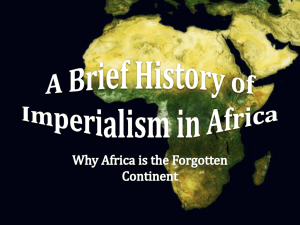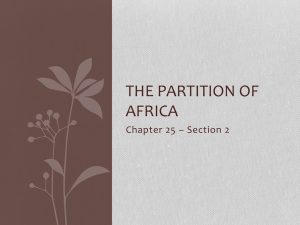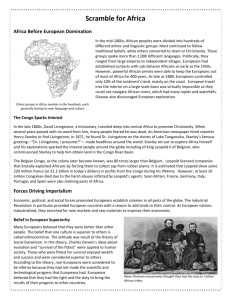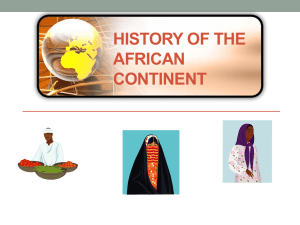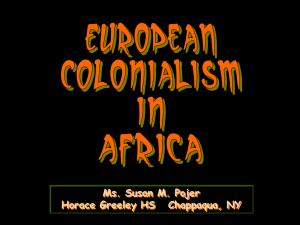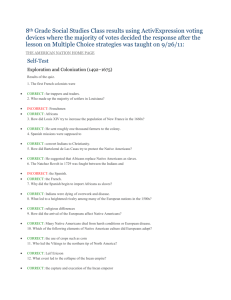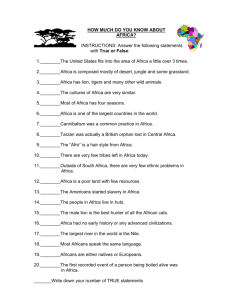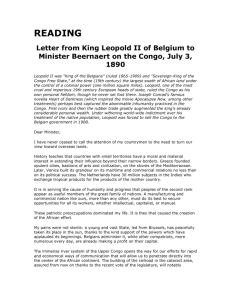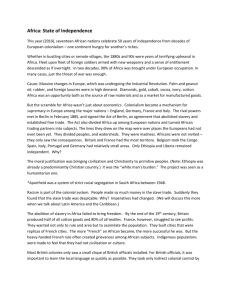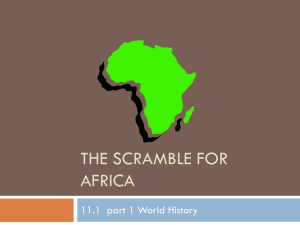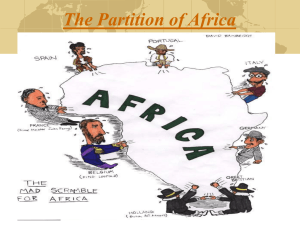Scramble for Africa: European Colonization & Imperialism
advertisement
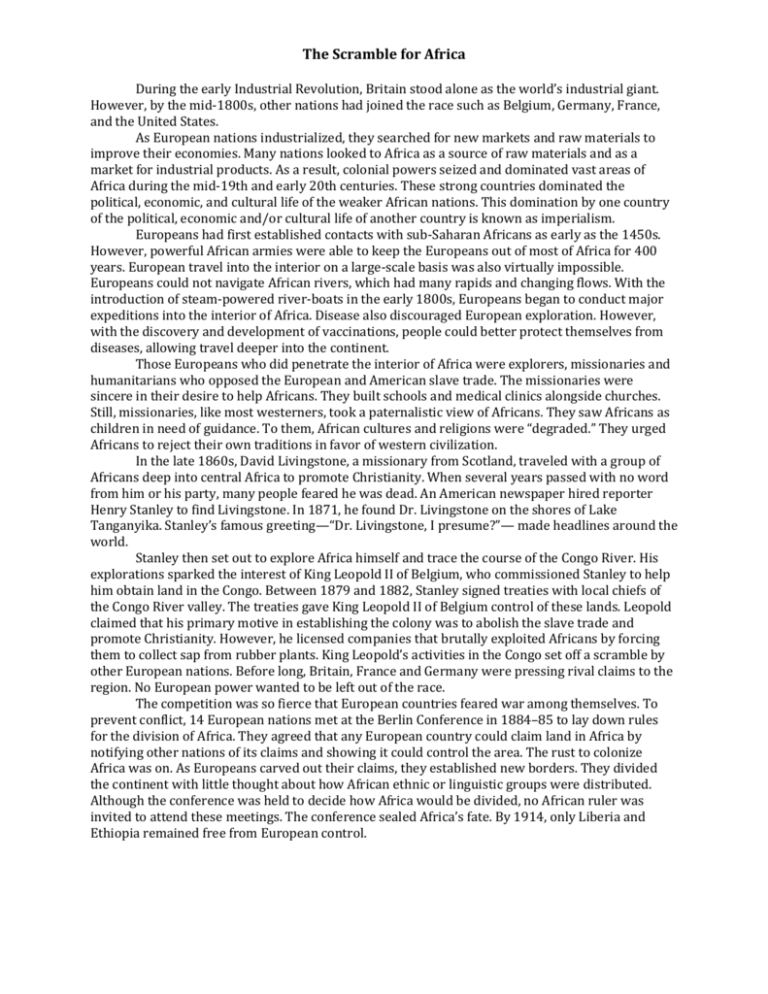
The Scramble for Africa During the early Industrial Revolution, Britain stood alone as the world’s industrial giant. However, by the mid-1800s, other nations had joined the race such as Belgium, Germany, France, and the United States. As European nations industrialized, they searched for new markets and raw materials to improve their economies. Many nations looked to Africa as a source of raw materials and as a market for industrial products. As a result, colonial powers seized and dominated vast areas of Africa during the mid-19th and early 20th centuries. These strong countries dominated the political, economic, and cultural life of the weaker African nations. This domination by one country of the political, economic and/or cultural life of another country is known as imperialism. Europeans had first established contacts with sub-Saharan Africans as early as the 1450s. However, powerful African armies were able to keep the Europeans out of most of Africa for 400 years. European travel into the interior on a large-scale basis was also virtually impossible. Europeans could not navigate African rivers, which had many rapids and changing flows. With the introduction of steam-powered river-boats in the early 1800s, Europeans began to conduct major expeditions into the interior of Africa. Disease also discouraged European exploration. However, with the discovery and development of vaccinations, people could better protect themselves from diseases, allowing travel deeper into the continent. Those Europeans who did penetrate the interior of Africa were explorers, missionaries and humanitarians who opposed the European and American slave trade. The missionaries were sincere in their desire to help Africans. They built schools and medical clinics alongside churches. Still, missionaries, like most westerners, took a paternalistic view of Africans. They saw Africans as children in need of guidance. To them, African cultures and religions were “degraded.” They urged Africans to reject their own traditions in favor of western civilization. In the late 1860s, David Livingstone, a missionary from Scotland, traveled with a group of Africans deep into central Africa to promote Christianity. When several years passed with no word from him or his party, many people feared he was dead. An American newspaper hired reporter Henry Stanley to find Livingstone. In 1871, he found Dr. Livingstone on the shores of Lake Tanganyika. Stanley’s famous greeting—“Dr. Livingstone, I presume?”— made headlines around the world. Stanley then set out to explore Africa himself and trace the course of the Congo River. His explorations sparked the interest of King Leopold II of Belgium, who commissioned Stanley to help him obtain land in the Congo. Between 1879 and 1882, Stanley signed treaties with local chiefs of the Congo River valley. The treaties gave King Leopold II of Belgium control of these lands. Leopold claimed that his primary motive in establishing the colony was to abolish the slave trade and promote Christianity. However, he licensed companies that brutally exploited Africans by forcing them to collect sap from rubber plants. King Leopold’s activities in the Congo set off a scramble by other European nations. Before long, Britain, France and Germany were pressing rival claims to the region. No European power wanted to be left out of the race. The competition was so fierce that European countries feared war among themselves. To prevent conflict, 14 European nations met at the Berlin Conference in 1884–85 to lay down rules for the division of Africa. They agreed that any European country could claim land in Africa by notifying other nations of its claims and showing it could control the area. The rust to colonize Africa was on. As Europeans carved out their claims, they established new borders. They divided the continent with little thought about how African ethnic or linguistic groups were distributed. Although the conference was held to decide how Africa would be divided, no African ruler was invited to attend these meetings. The conference sealed Africa’s fate. By 1914, only Liberia and Ethiopia remained free from European control. 1. What other countries began to industrialize after Britain? 2. As European nations industrialized, why did they look to the continent of Africa? 3. What is imperialism? 4. What were some obstacles European nations faced in the early exploration of Africa? How were those obstacles met? 5. Who was able to penetrate the interiors of Africa? 6. How did the missionaries view Africans and their cultures? 7. What was King Leopold II really doing in the Congo River Valley? 8. What happened as a result of King Leopold’s activities in the Congo? 9. What was the Berlin Conference? 10. What rules in regard to colonization were created at the conference? 11. What was wrong about the conference?
